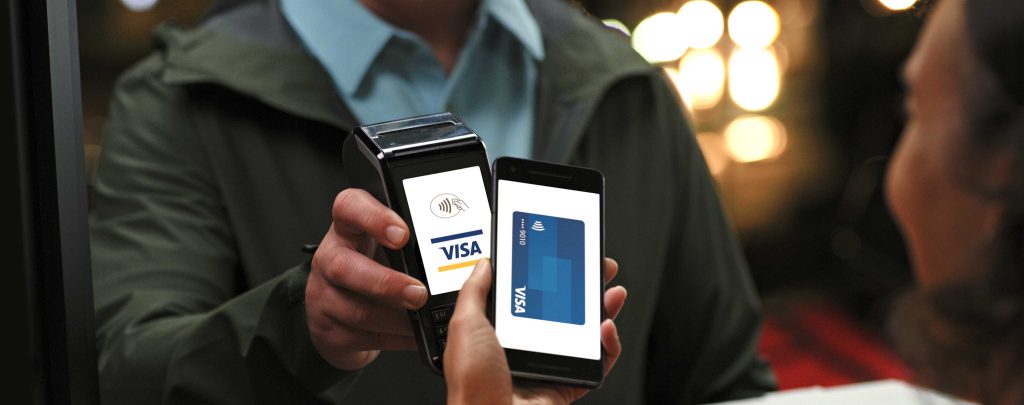‘Digitalisation’ may sound like a big word to many SMEs. Over the last few years, it has been the latest buzzword in the media, emphasising how businesses need to ‘digitalise or risk being displaced’.
However, that has not convinced many SME owners, who are still uncertain about the benefits of going digital. The cost and learning curve of digital is also another hurdle that organisational inertia may not overcome.
Companies such as Visa are here to help businesses succeed in digitalisation, especially given the fast pace of adoption of digital technology due to the pandemic. Ng Kong Boon, Country Manager for Visa Malaysia, said, “As we continue to navigate through the evolving impact of the COVID-19 pandemic, it is important for businesses to explore changes in their plans, offerings, and communication plans with consumers. In the past year and a half, we saw more businesses accepting digital payments, and some are also adopting use of Commercial cards. We believe there is still tremendous opportunity to grow usage of digital payments in the B2B space.”
Data is King
What many people don’t realise is that at its heart, ‘digitalisation’ is all about data. Every day, we generate lots of data without even realising it. For example, we are able to know about the state of our health by tracking several data points, like heart rate, blood sugar level, caloric intake, lipid profile, and more. We can digitalise the collection of such data by wearing a smart watch that measures our heart rate throughout the day and track our activity by calories burned.
Similarly, SME owners can track the health of their businesses by measuring expenses, cash flow, customer profiles, and many other parameters. Today, many of these businesses are using manual processes to collect and track such data. The challenge for business owners is that collection of such data can be time-consuming, manual and disorganised – especially when the business starts growing.

Let’s take the example of a fictitious SME, InnovRes Co. When InnovRes hit $5 million revenue, they realised that they were shelling out thousands of dollars on business travel every month to meet clients in other states, or even overseas. Typically, personnel travelling for business will use their personal credit cards or cash to cover approved expenses and request for reimbursement once they submit their documents.
When travel expenses increased in volume, tracking became more and more laborious for the company. This also led to an increase in overspending, fraudulent expenses, and employee dissatisfaction.
InnovRes also encountered problems when they were purchasing from suppliers based abroad. Paying their suppliers via wire transfers incurred hefty fees, not to mention the risk of unfavourable exchange rates.
InnovRes’ problems can be solved by using a Corporate/Business card for employees to charge their travel expenses, and a commercial business card for payment of their suppliers. Purchasing cards allow businesses to pay quickly and securely, reducing the chance of transaction errors or fraud. In addition, it allows businesses to take advantage of the free credit days so that they are able to maximise their working capital and better manage their funds.
Moreover, Visa’s suite of digital analytics allows SMEs like InnovRes to simplify and track their spending. When employees travel, they can be issued a virtual card with defined spend limits as well as approved spend categories. The finance manager can easily validate expenses without paper receipts, and has excellent visibility into their employees’ spending.
Companies can get in-depth details about each expense, whether it is a purchase or a travel expense. When it is integrated with the company’s accounting system, each approved expense report is fed straight into the system to facilitate accurate accounting. A comprehensive picture of the organisation’s spending and cash flow can be easily viewed, allowing data-driven insights for more strategic decisions.
It is not only the finance team that will benefit – employees too will benefit from this. They no longer have to spend out-of-pocket for company expenses and wait for reimbursement, or go through the tedious process of filling up forms and attaching receipts if they have Corporate/Business cards.
Use of Purchasing cards is the first step that businesses can embark in their digitalisation journey. Digitalisation can already bring about efficiencies in running the business, as shown in the example for InnovRes. Similar to consumer payment cards, Visa’s Purchasing cards also have several benefits and rewards catered for cardholders including:
- Commercial card business offers
- Corporate liability waiver
- eCommerce purchase protection
- Cardholder inquiry service
- Emergency card replacement and emergency cash disbursement
- Lost/stolen card reporting
- Travel and emergency assistance services
For more information, visit Visa’s website here.
























